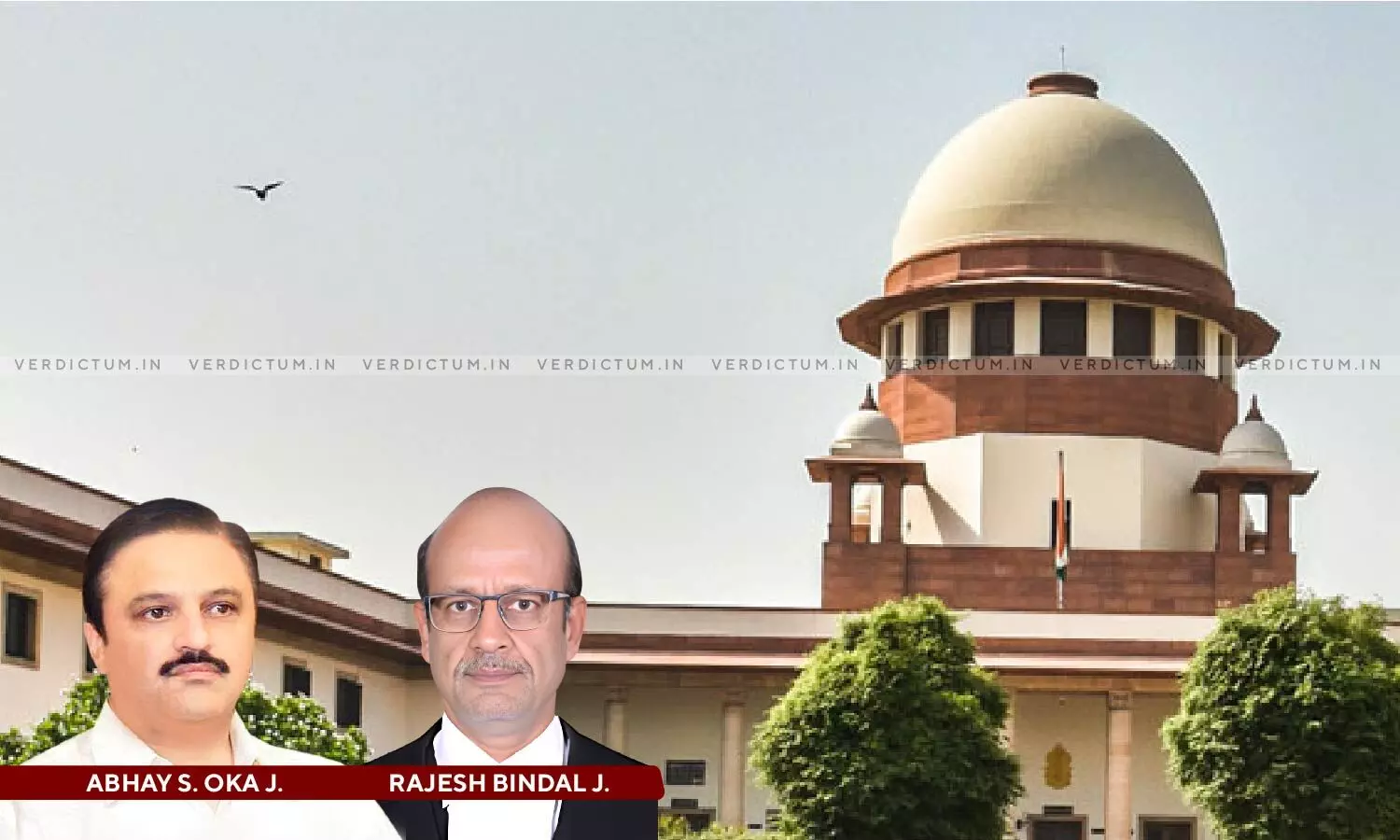
CPF Scheme: Wrong Deductions From Salary Cannot Defeat Rightful Claim Of Employee- Supreme Court Observes
 |
|The Supreme Court in a case relating to CPF (Central Provident Fund) scheme has observed that merely because there were some wrong deductions from the salary of the employee and that he was treated as a member of the CPF scheme, cannot be permitted to be raised as a ground to defeat his rightful claim.
The two-Judge Bench comprising Justice Abhay S. Oka and Justice Rajesh Bindal held, “It is not in dispute that the respondent no.1 had exercised his right to receive pension under the 1990 Regulations in the year 1991. Thereafter, it was the duty of the Corporation to have given effect to the same. Merely because there were some wrong deductions from his salary and he was treated as member of the CPF Scheme, cannot be permitted to be raised as a ground to defeat his rightful claim. The pension was to start after retirement of the respondent. When the same was not released to him, immediately representation was made by him. As no response was received from the appellant, the writ petition was filed.”
The Bench said that the argument that there are number of similarly situated employees who will also stake their claims, will not deter the Court in granting the relief to the respondent, which is legitimately due to him.
Senior Advocate Sanjay R Hegde and Advocates Adeel Ahmed and Raja Chatterjee appeared for the appellants while Advocates Subhasish Bhowmick, Manas Kumar Ghosh, and Susmita Dey appeared for the respondents.
In this case, the respondent was appointed in the Calcutta State Transport Corporation as a conductor in 1981 and the 1990 Regulations were framed providing for a pension scheme for the employees, which was effective from 1984. In terms thereof, the existing employees were to give the option to avail of the benefit under the 1990 Regulations, and prior to this Contributory Pension Scheme was in force.
Hence, the respondent submitted his option within time seeking voluntary retirement in 2017, and certain retirement benefits were paid to him, however, no pension was paid to him for which he had exercised the option. He filed a representation but no action was taken thereon as a result of which he filed a writ petition which was allowed by the High Court.
The Supreme Court after hearing the arguments of the parties noted, “There was no conscious abandonment of right to receive pension by the respondent no.1 to deprive him of his pension.”
The Court in the above regard relied upon the case of Kalpraj Dharamshi and Another v. Kotak Investment Advisors Limited and Another (2021) 10 SCC 401.
“The argument that there are number of similarly situated employees who will also stake their claims, will not deter this Court in granting the relief to the respondent, which is legitimately due to him. Rather this argument shows that the Corporation was at fault in implementing the 1990 Regulations in the cases of number of employees though these were notified on 4.1.1991 and were given retrospective effect from 1.4.1984”, asserted the Court.
The Court concluded that the technical objections sought to be raised are not tenable and that for any fault on the part of the Corporation, the employees cannot be made to suffer.
Accordingly, the Apex Court dismissed the appeal.
Cause Title- Calcutta State Transport Corporation & Ors. v. Ashit Chakraborty & Ors.